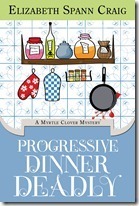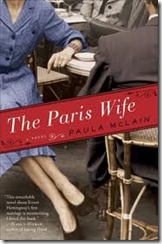Riley Adams's Blog, page 195
August 25, 2011
Not in the Mood to Write? Write According to Your Mood
 I've noticed in the past that my mood influences my writing.
I've noticed in the past that my mood influences my writing.
It's been a really busy last few days, as I mentioned yesterday. I'm trying to take things a little slower now and plan some of my day ahead of time.
But it's still busy. And that, unfortunately, makes me cranky. I don't really like to be busy. But busy is a way of life for me.
I noticed my crankiness coming through a character a couple of days ago. The scene involved a neighbor's visit and was intended to be a springboard to set up a murder.
My protagonist, though, didn't want to be visited. She wanted to be very still and drink herbal tea. She was decidedly grouchy when she answered the door and ungracious during the course of the visit. And she wasn't supposed to be!
I stopped writing the scene and worked on another part of the book—a section where there was real tension in the room and the characters were all angry with each other.
I could write tension and conflict perfectly. :)
Some books I've written straight through from start to finish. If I run into a block, though, or if the writing gets too close to me (because I don't write myself into books) , it's better to just open another Word document, save it under a scene description, and write the scene I'm in the mood to write.
Fortunately, most books have as many different types of scenes as there are moods.
Sometimes I'm in a really peppy, lighthearted mood and comedy comes easily to me. If I've got excessive amounts of energy, then I'll write an action scene. If I'm not feeling particularly creative, I'll revise a book (I usually have a book I'm revising and one that I'm writing.)
My muse and I have never been on speaking terms. Luckily, I can work around her.
Do you write out of order sometimes? Do you ever feel your mood leaking into your writing?
Scheduling Time to Breathe
 Life is usually pretty fast-paced here. Recently, it's been faster-paced than usual.
Life is usually pretty fast-paced here. Recently, it's been faster-paced than usual.
Today is the first day of school for my children. The last week has been a blur of preparations for school, celebrating a family birthday, and other activities. One of my babies is going to high school today…and I really don't know where the time has gone.
On Tuesday, there was an earthquake in Virginia. The tremors were felt as far away as Georgia.
My dad felt them in South Carolina. "I was reading on the porch," he said. "I felt them for about ten seconds."
I'd been driving at the time, focused on the task so that I could check something else off my list to get to another thing on my list…and then another.
Several other people asked me if I'd felt anything. I think, on Tuesday, the ground would have had to have opened and swallowed me up before I noticed. No, I didn't notice an earthquake. If I felt anything, I probably just attributed it to uneven pavement under the car.
But if I'd been reading on a quiet porch in South Carolina? Sure. I'd have felt them then.
This makes me think that I need to give myself a little more breathing room each day to just observe.
Whenever I'm not running frantically, I've noticed that I get more ideas for my writing. I might get a character idea or a bit of description, or a plot twist. It might even be something big, like an idea for a series.
Although I don't see life getting any quieter in the next couple of weeks (the opposite is true, actually), I think I'm going to get up earlier to get prepared for it all so that maybe I can fit in my breathing space between it all. I usually get up at 5---I think I'm going to make it more like 4:30. And maybe do more list-making the night before I turn in. That way I won't be playing catch-up each day.
How do you fit some quiet time into your day? All ideas welcome. :)
August 23, 2011
Creating an Uncomfortable Situation
I was at a local amusement park with my children last weekend and was put in an uncomfortable situation a couple of times in a row.
We were in the water park when a family took it upon themselves to have a humongous, awful argument about five feet away from me. They were calling each other names (the children as well as the adults), being passive aggressive, being openly aggressive, and being overall very loud. The dad was a bully, the mom was shrill, the teenage son was accusatory. I tried to escape.
Shortly after that, a large lady in an inner tube floated up to me in the shallow area and stayed right there next to me, less than a foot away. I'll admit to having some personal space issues, but I think even someone who doesn't would think that was a little close when the rest of the shallow area had no one in it at all. (The arguing family had moved on to another section of the pool.)
It all made me think about creating discomfort in our books.
Putting our characters in uncomfortable situations can be a way to create humor. It's fun to put a character in an uncomfortable situation and see what happens. My character, Myrtle, gave a disastrous dinner party and she was so serious about trying to make everything perfect. When it all backfired on her, it made the scene funny.
By making our protagonist feel uncomfortable, we can pull our reader into the tension that she's feeling. This will evoke sympathy for our character.
This discomfort can be used as a way to keep readers turning pages….readers want our friendly protagonist to get out of the situation she's in.
Lend a sense of realism to a scene. We've all been in situations where we feel uncomfortable. Readers can relate to it.
Do you like making your characters uncomfortable? How have you done it in the past?
August 22, 2011
Naming Characters
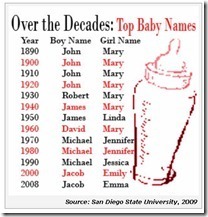 I usually have a good time naming characters, but I'll admit that sometimes I have to go back and change names later. Or add them.
I usually have a good time naming characters, but I'll admit that sometimes I have to go back and change names later. Or add them.
My editor for the quilting mysteries called me a couple of weeks ago. "Does your victim have a last name?" she asked.
I blinked. Did she? I told my editor I'd email her, then went through the manuscript, searching for it. Nope, she sure didn't. The victim didn't really need one at the time, but my editor needed a last name for the back cover copy. Oddly enough, I did have a last name in my brainstorming notes but it hadn't come into play in the book…I guess I just used it to set the character in my brain when I was drafting.
This kind of last-minute change or addition of names has happened to me before.
One book I submitted needed a character name change in the 11th hour—the name was already taken by a real person…an actual author at another publishing house. We didn't want to step on any toes or make it look like I had a vendetta against that poor author (I didn't even know them, but it would have looked bad.)
Here are some things I've learned about naming:
Not everyone should be named. Bit characters can usually just remain unnamed and just tagged.
We should avoid naming characters names that start with the same letter. I'm editing a book I wrote a long time ago and I'm amazed that I have 3 characters whose names start with B. Really? I'm changing them.
Sometimes character names alone aren't enough to place a character with a reader. A short reminder of who the character is when they come back onstage might be a good idea (especially if they have a smaller role). It's helpful to have a 'Jenny hopped in the car, still wearing her scrubs from work.' Really, you don't even have to be that vague with the reminders: sometimes a 'Jenny, Cameron's sister, got in the car' is fine to slip in. I think this is becoming even more important with ereaders, since it's a bit more of a pain to type in a name to search for it, instead of just flipping (or it is to me, anyway.)
Using nicknames as well as regular names can be tricky unless we make it clear or we're fairly consistent with the nicknames (one character uses it all the time to refer to another character, etc.)
I try to find appropriate names for my characters. Right or wrong, there's definitely baggage that comes along with certain names. If I were going to write a beauty queen, I probably wouldn't choose the name 'Gertrude' unless I was trying to be funny. Trudy, though, might work out well. I wouldn't name my intellectual Biff…again, unless I was trying to make a point. It would be too much work to try to undo the readers' quick leap to stereotype.
Every book I seem to change a character name at least once. After eight chapters, they may not be the same person I thought they were in chapter two. By chapter eighteen, they might have changed again.
Do you enjoy naming characters? Do you always stick with a character name or have you changed them in the past?
August 21, 2011
What Does Your Character Want?
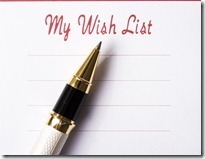 We frequently hear, as writers, the advice that our protagonist needs to want something.
We frequently hear, as writers, the advice that our protagonist needs to want something.
As Kurt Vonnegut put it: "Every character should want something, even if it is only a glass of water."
And Vonnegut did say every character…not just our protagonist.
Of course, though, it's natural to focus on what our main character wants. If there's something he really wants and we keep it out of his reach, we're creating tension and conflict with whatever is keeping him away from his goal.
It's also important for readers to know what our protagonist's motivation is. What his stake in the story is.
Sometimes it's fun to have the protagonist struggling to choose between two separate things that he really wants….things that might seem mutually exclusive. But have them both be extremely important to the character. Obviously, this creates even more tension.
What if our protagonist's goal and what he wants changes during the course of the story? What happens then?
But we also have antagonists to work with. And if her goal is opposite from our protagonist's, then we're setting them up for battle.
What about those characters who want the same thing that our protagonist wants…but maybe they're inept in some way or accidentally bumble through and mess things up. Unintentionally.
There are also characters who don't share the same goals as our protagonist, but they aren't antagonists on a huge scale. Maybe they're just holding back our protagonist in some way because their goals don't align completely with his. (Like our protagonist's boss. Our protagonist wants to be having adventures in Maui, but his boss wants him at his desk job.)
Does your character want something on an epic scale or a smaller one? Mine usually just want to put killers behind bars. :)
August 20, 2011
Twitterific

![Terry3_thumb[1]](https://i.gr-assets.com/images/S/compressed.photo.goodreads.com/hostedimages/1380447585i/1701687.png)
Below are my writing-related tweets from the last week.
The Writer's Knowledge Base search engine, designed by software engineer and writer Mike Fleming, makes all these links searchable—try it for searches on plotting, characterization, querying, book promo, and more.
I'm compiling a directory of ebook professionals—cover designers, formatters, freelance editors, etc.—to make it easier for writers to connect with services. If you'd like to be added, please email me at elizabethspanncraig (at) gmail (dot) com with your contact info, website, etc. The directory can be accessed here.
I also released an ebook this week. Progressive Dinner Deadly is a Myrtle Clover mystery and is available for $2.99 on Kindle and Nook. Hope you'll mention it to any friends who enjoy mysteries.
The love triangle trend in YA: http://bit.ly/peOvjb @wordforteens
14 Quick Tips for Fantastic Fantasy: http://bit.ly/off7k3
A 3-Way Conversation: The Authors-Agent-Editor Relationship: http://bit.ly/mRcrnS
Writing It All Wrong: A Survival Manual: http://bit.ly/oxzL2w
Helping Writers Make Sense of Death: http://bit.ly/nGUtL8
The Script Lab does a 5-point plot breakdown of "Legally Blonde": http://bit.ly/pGlS6j
8 Simple Ways to Defrost Your Writing & Improve Its Clarity: http://bit.ly/oeF3zx
How to Serialize a Novel (or Not): http://bit.ly/nfKWKr
5 online tools for writers: http://bit.ly/neyhpU
Why 2nd Novels Are So Different from the First: http://bit.ly/nml8uf
The Way We Publish Now: http://bit.ly/poYmZs @AnneRAllen
Are you writing the wrong genre? http://bit.ly/mQT08i @dirtywhitecandy
Sticking our readers into an interesting situation: http://bit.ly/rmsTGk
Finding & defining a profitable niche for your book: http://bit.ly/oP5qrh
3 Criteria for a Killer Title: http://bit.ly/pXXNeL @KatieGanshert
Agents Verses Intellectual Property Lawyers: http://bit.ly/oAbMxx
Blogging without a computer: http://bit.ly/pWFSXR
Building Allies: Working with Libraries: http://bit.ly/ol4YDx @ryanmwilliams
Tips for writing dialogue: http://bit.ly/n2L9kr
How To Find an Illustrator for Your Book: http://bit.ly/ppfZB3 @thecreativepenn @writetip
3 authors, 3 examples of the disruption in #publishing: http://bit.ly/pl58kk
International Conference Survival Tips: http://bit.ly/opcNPc
How Much Has Book Marketing Changed Since 2005? http://bit.ly/pbJR6e @janefriedman
3 Copywriting Tips for Writers: http://bit.ly/ptktSb
10 things 1 writer would have done differently: http://bit.ly/q6acdz @roniloren
Open your story with a (subtle) bang: http://bit.ly/qeblLZ
Book ideas for newbie writers: http://bit.ly/mYPe7g
How Gaming Invaded 1 Writer's Writing Worldview: http://bit.ly/qBWKg8
Writers--stop worrying: http://bit.ly/rhqUMh
Should You Respond To Every Email? http://bit.ly/oSwqbA
Debut authors--take a moment to enjoy it all: http://bit.ly/qdmaWZ
Hyphenation in Compound Nouns: http://bit.ly/ohmG8C
Tips for querying: http://bit.ly/pmmKDW
Building a Magical System: A Questionnaire: http://bit.ly/qzIRDe
Comparing long and short headlines for effectiveness: http://bit.ly/pdahh7
How to be a faster writer (Slate): http://slate.me/q9IOcY
Using Dirty Fighting To Escalate Tension In Your Story: http://bit.ly/q8ya7Y @jhansenwrites
Killing the Sacred Cows of Publishing. The Myth of Knowing it All: http://bit.ly/qtFpYV
Commonly misused words: http://bit.ly/qc1RMy @authorterryo
The 5 Worst Ways to Title a Blog Post: http://bit.ly/nbLU78
Suffering and the Brilliant Author: http://bit.ly/ofypfh @SarahAHoyt
How To Comparison Shop For Books: http://bit.ly/oON2xL @galleycat
Plotting mysteries...with help from JK Rowling: http://bit.ly/qF8uAa @HP4Writers
The Art of Stringing 'Em Along: http://bit.ly/p2ZGyq @katieganshert
With Great Productivity Comes Great Preparation: http://bit.ly/p0W1Tv
What Does Your Author Bio Say about You? http://bit.ly/piaqA0 @JamiGold
5 ways to structure a plot: http://bit.ly/pBeJ9O
Why 1 writer loves writing in 1st person: http://bit.ly/qRbx8I @4kidlit @LisaGailGreen
5 Ways to Thrive in your Writing Career: http://bit.ly/rkabtW
3 Tricks for Ratcheting Tension: http://bit.ly/nCYJRG @victoriamixon
Using an image list to boost your creativity: http://bit.ly/nB96BY
For writers looking for critique partners: http://bit.ly/qOTlEB @clarissadraper
The writer's what-if: http://bit.ly/pC88jO
Cliched Contrivances: http://bit.ly/rnmil0 @RavenRequiem13
Business card ideas for writers: http://bit.ly/pln13P
Writing lessons learned from "Hotel on the Corner of Bitter and Sweet": http://bit.ly/poPS4M @JulieMusil
An agent's thoughts on online browsing for books & the closure of brick and mortar bookstores: http://bit.ly/nOEsbT
A directory to help connect writers to cover designers, editors, and formatters: http://bit.ly/oYHAEF#
1 writer's list of 5 ways not to end a book: http://bit.ly/pCfymI
Easing your way into more responsibility: http://bit.ly/n1B0bj @jodyhedlund
Romance writing--unusual proposals: http://bit.ly/qNyjI4 & the big lie: http://bit.ly/qWdWXh
5 Creative Coaching Techniques To Get Yourself Unstuck: http://bit.ly/pobtkm
Relationships Focus Characters: http://bit.ly/qnWqZ7
A look at sleuths with troubled childhoods in crime fiction: http://bit.ly/nxNIet @mkinberg
Maintaining Your Enthusiasm Until the Book Is Completed: http://bit.ly/oSkYbN @KMWeiland
1 Harsh Reality of Blogging: http://bit.ly/q02qoR
Tips for staying organized: http://bit.ly/op9JhH
10 Uses for Forcefields: http://bit.ly/r7SKZA
Defining author brand: http://bit.ly/pk9pEE
Writing interesting places: http://bit.ly/p0nSUw
Why Are So Many Writers Plagued With Insecurities? http://bit.ly/pkihbn
A review of capitalization rules: http://bit.ly/rg5vS1
The importance of beta readers: http://bit.ly/o12aFU
7 Annoying Blogging Personality Disorders: http://bit.ly/oTiaoW
2 tricks for beating writer's block: http://bit.ly/pMO9Pv @victoriamixon
A Few Things Writers SHOULDN'T Worry About: http://bit.ly/o1scRR
10 commandments for a happy writer: http://bit.ly/mUSmtX
Tips for conveying your characters in queries: http://bit.ly/pjZqsg
How to handle bad reviews: http://bit.ly/nVirNg
The Dangers of Being An Apathetic Writer: http://bit.ly/r6ToBx
Crime Writers: Hostage Situations from a Criminal's Perspective: http://bit.ly/nsKE6E
Inclusion of lies and lying to enrich our stories: http://bit.ly/ogi5VN @JulietteWade
Don't Feel Guilty About "Playing Around" Online: http://bit.ly/n6Q5S4
Book collectors--buyer beware on signatures: http://bit.ly/nLN7N0
Writing conference tips: http://bit.ly/pO0xdZ
Authors value reader encouragement: http://bit.ly/p3F7SZ @JodyHedlund
Networking at writers' conferences: http://bit.ly/qmehAi
Character quirks and foibles: http://bit.ly/nDgB2P
What Every Writer Needs to Know About Cover Design – Even if You're not Self-Publishing: http://bit.ly/o1xusJ @dirtywhitecandy
Dealing with reviews and critiques: http://bit.ly/r3nFxR
Writing a book--marketing and promo: http://bit.ly/nUGHkk
1 writer's thoughts on reader reviews and rating books: http://bit.ly/q3wOSN @authorterryo
Thoughts on self-pubbing vs. traditional: http://bit.ly/pTq8fh
6 places to find critique partners & feedback on your work: http://bit.ly/oQWYr8 @ClarissaDraper
Why Your Blog's "About" Page Matters: http://bit.ly/qqN17z
Using the element of surprise in our writing: http://bit.ly/o7rmtr
An agent says that writing rules are just tools: http://bit.ly/qkj7oM
Grantwriting 101 for Writers: http://bit.ly/nOjpD6 @JaneFriedman
3 exercises to add layers of complexity to both scene and character: http://bit.ly/ocI9U1 @BTMargins
Why it's important to keep POV consistency: http://bit.ly/psotDh
What makes slang stick? (Slate): http://slate.me/p7msGX
A history of steampunk: http://bit.ly/pm2B4J , http://bit.ly/n54uCS , http://bit.ly/nwbi8a & http://bit.ly/nqeaej
Why You Need A Literary Agent… Or Do You? http://bit.ly/n3cPKD @mjcache
How to Check Your Book Proof in 3 Simple Steps: http://bit.ly/mP4kly
Creating great villains: http://bit.ly/ojbsky
5 Ways to Know You Need More Life Balance: http://bit.ly/n99dbI
5 Slang Words That May Never Be Legit: http://bit.ly/q3yZ6L
How To Find the Book on the Tip of Your Tongue: http://bit.ly/nNxiFV @galleycat
4 Steps to Breaking Out Your Creativity: http://bit.ly/nqRiHb
Why Do Agents Close To Submissions? http://bit.ly/qx9dt3
A book blogger with tips for getting your book reviewed (and pitching a blogger): http://bit.ly/oiZ80x @jesslaw
Beware the Bog of Back Story: http://bit.ly/r0iP57 @KristenLambTX
How to Get an MFA equivalent in 5 steps: http://bit.ly/nXXdsW @sarahlapolla
3 Questions to Ask Before You Publish Your Next Blog Post: http://bit.ly/o9EkW5
Using Scrivener Software to Plot a Novel: http://bit.ly/o7YmBp @sarahketley
Authors, Do You Have a Facebook Fan Page? http://bit.ly/oNusBx
5 More Ways To Kill A Sentence: http://bit.ly/opqShL @Grammar_Diva
How to Lose Fans & Alienate People: http://bit.ly/oIYx1E @MuseInks
What to Say on Social Media When You Have Nothing to Say: http://bit.ly/oyt6W5
Words That Should (Not) Be Capitalized in Titles: http://bit.ly/oPQPs2
Are You Missing This Crucial Skill Set as a Writer? http://bit.ly/p8tZvJ
Internet Resources For Writers: http://bit.ly/nDy2Lr @ErinORiordan
3 Principles for Facebook Fan Pages: http://bit.ly/pW6MxP @janefriedman
The Sagging Character: http://bit.ly/pCJdvU
Strategies for making time to write: http://bit.ly/p9iLyx
How to begin a story: http://bit.ly/rstlNH @BTMargins
9 Tips for Becoming A Freelance Writer: http://bit.ly/oW2u6Y
A look at Pottermore and engaging our reader electronically (and, who are we trying to serve?): http://bit.ly/rbBQ02 @HP4Writers
Best Articles This Week for Writers 8/19/11: http://bit.ly/oo7Io4 @4kidlit
Are You Wasting Your Time Trying to Get Published? http://bit.ly/p3LNcw @JaneFriedman
Thinking = Plotting: http://bit.ly/p8j8UW
Stop being an 'aspiring' writer: http://bit.ly/qbGkwx @JaneFriedman
Live Intentionally But With Breathing Space: http://bit.ly/ojU7PM @JodyHedlund
Do Writers Read Differently Than Non-Writers? http://bit.ly/qLT88g @jhansenwrites
Addressing the reader in our stories: http://bit.ly/oAJyEZ
Those who argue with rejections: http://bit.ly/pxvZw7
My tweets are archived and searchable at the Writer's Knowledge Base: http://bit.ly/dYRayA
Who's In Charge of Writing This Story? http://bit.ly/qOrS8U
Romance writers--don't make Mr. Fabulous *too* fabulous: http://bit.ly/nzLK4Q
Tips on Self-Destructive Protagonists: http://bit.ly/mUoCAS
How to Reverse-Outline Your First Draft: http://bit.ly/ru8Kug
Platform 101 for Regular (Not-Famous) People: http://bit.ly/pFm2NH
Publishing on Kindle - A Tutorial : http://bit.ly/owzBEV #ebooks
Time management tips for the marketing author: http://bit.ly/nbSMwa @rileymagnus
How to Read a Book Contract: http://bit.ly/oLQJOf @PassiveVoiceBlg
Personalizing Your Query: http://bit.ly/pLlM4w
7 Lessons 1 Writer Learned by Starting Over with Blogging: http://bit.ly/qgdjvc
Novel Ideas For Indie Bookstores: http://bit.ly/nThQd5
10 ways to survive crazy conference roommates & other advice: http://bit.ly/qfU8Ov
What book publicists earn: http://bit.ly/paNw9F @galleycat
10 ways to find Mr. Write at a writers conference: http://bit.ly/puwZgN
Finding a Quiet Place to Write: http://bit.ly/qjzC2R @jodycalkins
Publishing terms that writers should be familiar with: http://bit.ly/nzOUz4 @selfpubreview
Autograph Your Ebooks: http://bit.ly/r2VGNX @PassiveVoiceBlg
An agent asks writers to think about their project before starting it: http://bit.ly/qc9Fn7
Help for Writers—in Case You Missed It
Is it just me, or did this week go by in a blur?
In case you missed it (and I think a lot slipped by me this week), here are three different helps for writers:
 Critique sites. Clarissa Draper focused on critique groups this week on her blog, Listening to the Voices. She talks about what it means to be a critique partner/beta reader, launched a critique partner match-up feature for her blog, and linked to six other sites that match writers with crit partners.
Critique sites. Clarissa Draper focused on critique groups this week on her blog, Listening to the Voices. She talks about what it means to be a critique partner/beta reader, launched a critique partner match-up feature for her blog, and linked to six other sites that match writers with crit partners.
 Alex J. Cavanaugh is launching the Insecure Writers Support Group. As he explains in this post :
Alex J. Cavanaugh is launching the Insecure Writers Support Group. As he explains in this post :
I've noticed a lot of posts lately about doubts, concerns, and a lack of confidence. Insecure is a term most writers use to describe themselves….
I thought it would be cool if one day a month, everyone involved in the Insecure Writers Support group posted either:
A situation where they need some encouragement Words of encouragement for others about to face a situation
Alex is working out the logistics of this project and was looking for feedback in his post on Friday.
I applaud Alex for setting this up because I think if a writer is confident (and maybe even stubborn), they're going to go far with their writing and stick with it.
 And, this week, I opened up a free directory for writers looking for cover designers, ebook formatters/converters, freelance editors, etc. It's not pretty (my spreadsheets always look clumsy), but all the information is there to get you started if you're in the process of looking for a pro to help you with your ebook.
And, this week, I opened up a free directory for writers looking for cover designers, ebook formatters/converters, freelance editors, etc. It's not pretty (my spreadsheets always look clumsy), but all the information is there to get you started if you're in the process of looking for a pro to help you with your ebook.
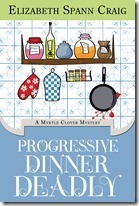 I also released an ebook this week. :) Progressive Dinner Deadly is a Myrtle Clover mystery and is available for $2.99 on Kindle and Nook.
I also released an ebook this week. :) Progressive Dinner Deadly is a Myrtle Clover mystery and is available for $2.99 on Kindle and Nook.
Anyone else got anything to announce or promote for the week?
August 18, 2011
Writing About Real People
I'd been hearing good things about Paula McLain's The Paris Wife, so I recently downloaded it to my Kindle and read the book. I really enjoyed it.
I found, however, that I kept sympathizing with Ernest Hemingway instead of Hadley, which is not what I think I was supposed to do. :)
As a writer, it's hard not to, though. After all, he was a literary genius. He's got to get those books out there. Don't hold him back, Hadley!
There were other times, of course, when Hemingway was less than likeable.
This book is a novel based on real events, so we can't really treat it as a biography, but it does have a lot of really interesting insights into the couple (and McLain did a ton of research.)
One of the things that apparently created some concern for Hadley Hemingway was the way that Ernest wrote about their friends and even parodied one friend's work (destroying some friendships in the process). And the fact that he didn't write about Hadley in The Sun Also Rises.
Apparently, everyone knew who Hemingway's characters were drawn from.
So some people were upset at being portrayed in a particular way and some were upset at not being portrayed at all.
This could become a problem with our own stories, too. Friends or family could get their feelings hurt. The thought of libel isn't too thrilling, either.
For me, it's more fun to take lots of small bits of different people and make it into a sort of Frankenstein's monster of a new character. That way I've still got the solid traits that I can easily describe, but I'm not drawing too much from one person.
And I don't put people's secrets into my book. Although I don't know too many secrets! And the fact that I'm a writer might be why. :)
To me, it's just not worth losing friends over. Some characters may be amalgams of many different people I know, but I'm not going to use one person's life or appearance to base a character or story on.
Do you write about people you know? Do you have a line you won't cross?
August 17, 2011
The Element of Surprise
 One of my favorite things about reading a book is being surprised. (Which is interesting, because in real life, I don't like being surprised.)
One of my favorite things about reading a book is being surprised. (Which is interesting, because in real life, I don't like being surprised.)
This surprise doesn't have to be anything as dramatic as a twist ending. It can be something as minor as a character showing an unexpected bit of depth or an unusual facet of his personality.
But I also like it when I've expected the plot to take a particular trajectory and something else happens.
I like to see an unexpected bit of trouble thrown at a character, too. How will they react? How does it change the direction of the story?
What surprises are good for:
As a distraction: A suddenly erupting argument or a quickly-contained but alarming grease fire provides a wonderful opportunity to slip in a clue under the radar. Writers of other genres can also use this slight of hand technique to protect a larger surprise later in the book.
For adding humor or quirkiness: You think a character is going to behave in a particular way. You've carefully portrayed Agnes as an uptight prude. Your protagonist views Agnes that way. Then Agnes says something outrageous and brazen that completely shatters this stereotype. Or Agnes invites the protagonist to lunch—and serves McDonald's Quarter Pounders with Cheese on her delicate china. With Bloody Marys.
For suspense: You can write a fairly ho-hum scene with a character going through her usual routine…which is suddenly interrupted when she's carjacked.
As a change of pace: Is your scene getting stale? Is your character going through the same motions every day? Liven things up with something unexpected. It doesn't have to be something major (scary landing during their plane trip)—it could be something as minor as a flat tire or a broken air conditioner that takes their day on a different and surprising trajectory.
As a way to add depth to a character: While we want our characters to behave in character, it's always fun to see different facets of a character, too. How do they react when we put them into an emergency situation? How do they react when we poke fun at them or put them under stress? What happens when we press their buttons? Sometimes their reactions can surprise us.
Do you enjoy throwing in surprising elements to your story? Do you use big or little twists?
August 16, 2011
Backing Up
 This is my public service announcement for the next few months. :)
This is my public service announcement for the next few months. :)
Y'all—back up your work.
Back up your writing and everything else that's important to you on your computer.
And…back up to more than one place. What if your backup fails? It's happened to me before.
Here are some backup options to consider that range from low to higher tech:
Use an online location to store your writing. You can email your book to yourself using any email address that can be accessed by webmail. You can also store your writing on Google Docs or an online story organizer (like Hiveword, from my friend Mike Fleming.)
Use a flash drive. Cheap. Easy.
Use an external hard drive. Word files don't take up much space, but you might want to buy an external hard drive if you have a lot of music or pictures to back up.
Print a copy. Bulky and a pain, but an option for anyone looking for a really low-tech option.
Use an online storage solution like Dropbox or Carbonite.
Blogs:
You should also backup your blogs. They sometimes disappear, too. Here is an article on the Guide to Literary Agents blog that discusses how to backup a Blogger, WordPress, and LiveJournal blog.
Also, if you're on Google Reader, remember to subscribe to your own blog there. You'll be able to access all your old posts from the Reader.
Go forth and back up! And, while you're at it, change your passwords, too. :)
What do you use for backing up?


